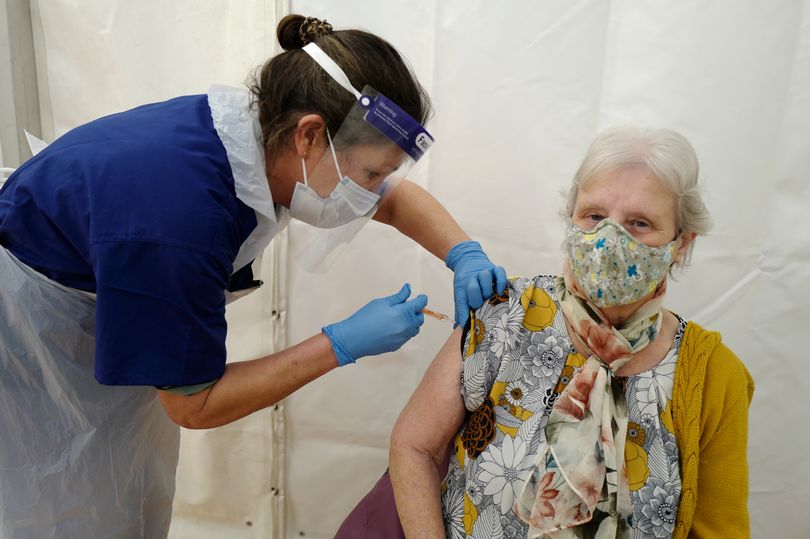Vaccine development has progressed at an incredible pace, with the World Health Organisation reporting 173 vaccine candidates in pre-clinical trials, 64 that have moved to human clinical trials, and three that have authorisation for use in the UK.
Part of this new wave is a potential new coronavirus vaccine from Oxford University which could be effective at lower doses. This would make it easier to produce and potentially be used in conjunction with other vaccines.
The early studies in animals show it will elicit a strong antibody response, and it’s hoped it could be useful as an individual vaccine to add to our growing list of options or as a booster for people who have had a different Covid vaccine.
At the moment a single vaccine is given in two doses for optimum protection.
Studies by Oxford researchers Tiong Kit Tan and Pramila Rijal and The Pirbright Institute showed the vaccine in pigs (as an animal model that resembles us) was capable of stimulating an excellent immune response, particularly in the nose and mouth.
This is Covid’s site of entry, so the vaccine could block the virus’s rampage, giving us robust protection at a lower dose than previous jabs.
Why test vaccines in pigs? Well, it was in pigs that scientists working on the Oxford/AstraZeneca vaccine first demonstrated that two doses of their drug produced a stronger immune response than one.
Pigs are invaluable in research because they have similar immune, respiratory and physiological systems to us and can provide insight about how we would respond to vaccines. The pig model has been shown to predict reliable vaccine results for the influenza vaccine.
Professor Simon Graham, who led the pig studies at Pirbright, said: “These results offer valuable insights into the kind of immune responses that the new vaccine (RBD-SpyVLP) could trigger in humans. Further understanding the dose required to elicit a strong immune response is key for progression of vaccine development and scaling up for manufacture.”
Importantly, the researchers have found the vaccine is stable at room temperature and can be freeze dried without losing its power to immunise so it wouldn’t need low temperatures for transport and storage, like the Pfizer-BioNTech vaccine, making global distribution feasible.
Professor Melanie Welham, executive chairwoman at the Biotechnology and Biological Sciences Research Council, said: “These latest results into the immune response from the Oxford Covid-19 vaccine candidate, RBD-SpyVLP, are exciting and promising.
“Researchers have demonstrated the ability to improve and advance development of the vaccine.”

